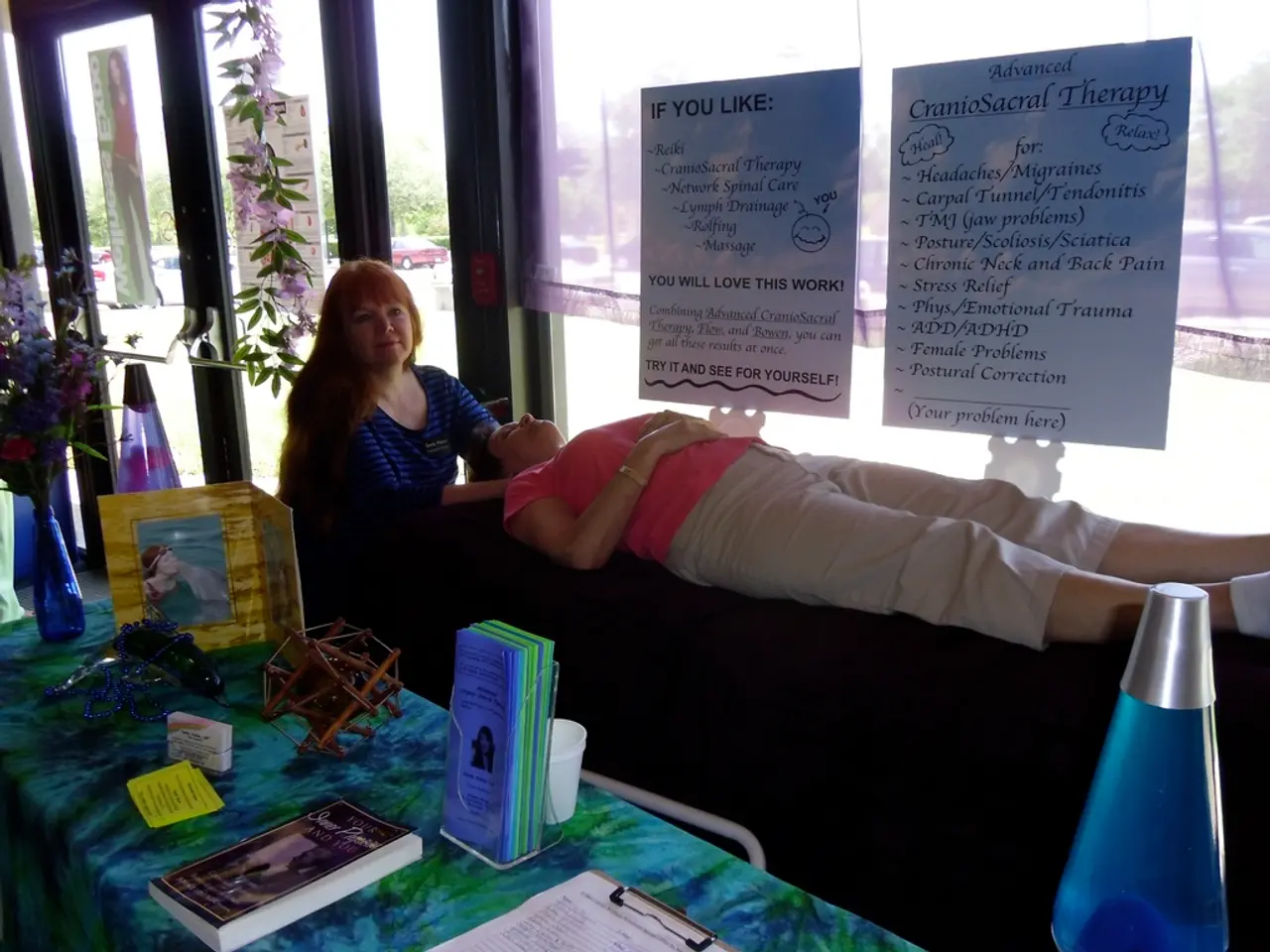Menopausal hot flashes receive treatment approval with elinzanetant, according to MHRA decision
The Medicines and Healthcare products Regulatory Agency (MHRA) has given the green light for the use of elinzanetant (Lynkuet), a new non-hormonal medication, to treat moderate to severe vasomotor symptoms associated with menopause. This decision follows extensive research and clinical trials, demonstrating that elinzanetant meets the MHRA's stringent standards for safety, quality, and effectiveness.
Elinzanetant, a dual neurokinin-1 and 3 receptor antagonist, works by calming signals in the brain to help control temperature and alleviate hot flushes and night sweats. The approval is based on results from the OASIS clinical trials involving over 1,400 women, which showed that taking a daily 120 mg tablet of elinzanetant significantly reduced the number and intensity of hot flushes and night sweats over 26 to 52 weeks, compared to a placebo.
The MHRA will continue to monitor elinzanetant's safety closely as it becomes more widely used. Anyone who suspects they are having a side effect from elinzanetant should talk to their doctor, pharmacist, or nurse and report it directly to the MHRA Yellow Card scheme. A full list of side effects for elinzanetant can be found in the Patient Information Leaflet or the Summary of Product Characteristics, available on the MHRA website within 7 days of approval.
Elinzanetant offers a much-needed non-hormonal option for those who may not be able to, or prefer not to, take hormone-based therapies. Hot flushes and night sweats associated with menopause can have a significant negative impact on quality of life, and this new treatment could provide relief for many women.
In addition to elinzanetant, recent innovations in the treatment of menopause symptoms include Fezolinetant, another non-hormonal medication that targets the brain’s NKB receptors to alleviate vasomotor symptoms. These developments highlight a growing focus on diverse treatment options and advocacy for better menopause care.
Furthermore, lifestyle and dietary modifications can also help manage menopausal symptoms. Recommendations include increasing intake of cocoa polyphenols, soy isoflavones, and dietary fiber, prioritizing restorative sleep, resistance training, increased protein intake, and anti-inflammatory nutrition, and maintaining a balanced gut microbiome through probiotics.
In policy and advocacy advances, legislative actions have been introduced in several U.S. states to improve menopause care, and efforts are underway to update outdated warning labels on hormone therapy products, aiming to increase access and alleviate misconceptions about its risks.
As we continue to learn more about menopause and its associated symptoms, it is clear that a multi-faceted approach, including medical treatments, lifestyle modifications, and policy changes, will be necessary to provide comprehensive care for women going through this significant life stage.
Science and health-and-wellness sectors are set to see a new advancement with the approval of elinzanetant for women's health, specifically in treating vasomotor symptoms associated with menopause. This new non-hormonal medication, currently under clinical trials, holds promise for those who prefer non-hormonal options, providing a potential solution for managing hot flushes and night sweats.




